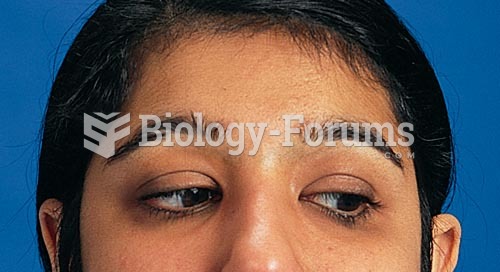|
|
|
It is believed that humans initially contracted crabs from gorillas about 3 million years ago from either sleeping in gorilla nests or eating the apes.
Anti-aging claims should not ever be believed. There is no supplement, medication, or any other substance that has been proven to slow or stop the aging process.
Recent studies have shown that the number of medication errors increases in relation to the number of orders that are verified per pharmacist, per work shift.
About 60% of newborn infants in the United States are jaundiced; that is, they look yellow. Kernicterus is a form of brain damage caused by excessive jaundice. When babies begin to be affected by excessive jaundice and begin to have brain damage, they become excessively lethargic.
Human kidneys will clean about 1 million gallons of blood in an average lifetime.
 Healed bone fractures can provide clues about activities and fresh fractures can yield information a
Healed bone fractures can provide clues about activities and fresh fractures can yield information a
 In 2013, Americans learned that the federal government massively surveys their phone calls and e-mai
In 2013, Americans learned that the federal government massively surveys their phone calls and e-mai





